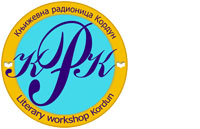|
|
|

ILIJA SAULA PHILOSOPHY IN THE NOVEL MIDAR  | Zdravko Malbaša | |
| |
detail from: KRK Art dizajn
Ilija Saula's philosophy in the novel Midar
prof. Ph.D Zdravko Malbasa
Directly reading the novel Midar and carefully considering all its parts, I came to the conclusion that the author Ilija Shaul presented before us a pure philosophical work, autochthonous and autonomous. The philosophy he brings us touches on many philosophical views. However, in the case of Saula, this is a mere coincidence, because he did not write his philosophy deliberately using a comparative method. It is a matter of his life experience and his own philosophical thought. That thought seems to tell us that Shaula is not even familiar with the philosophy of existentialists like Jaspers, Kierkegaard or Nietzsche and idealists, not even Socrates and Aristotle or any other philosopher. That philosophical thought of his is original because he builds it completely by himself. In an earlier, more thorough account, I emphasized that it was the main challenge to create the character Midar, who deserved to have his name as the title of the novel, because he brings us a different literary form through which Saula's philosophy is expressed. I am free to say that for me it is the first time that a novel becomes pure philosophy and the first time that philosophy becomes a literary genre. The main reason is probably that a dry, pure philosophy would not be presented, and the literary form would stifle it. I realized and I stated that the novel Midar is only the second part of Shaula's previous book Bulevar svetlosi, which is an encyclopedic register of all human topics and truths about life and meaning and its meaninglessness, and analytically elaborated in Midar, that is why that novel is difficult to read. All that time, the reader expects a story and a fable, a chronology of the events of the hero and the drama of the main characters, but the author does not, because his primary goal is to reach the reader with his philosophical thought. He happily and deftly realized that in such deliberation, the only way to choose a form is by immersing oneself in the mystical, the unknown, the distant, that is, in fantasy and the fantastic in literature. This is seen as a trend today, that science fiction is present, which Milorad Pavić understood well and in time in the Khazar dictionary. And Midar is nothing more than a dictionary, a register of philosophical topics and attitudes given in Boulevard, which in Midar were embodied in a real philosophical theory, an expression that I called that philosophy, the philosophy of philosophical confession, skilfully attached to the literary form of the novel Shaula had to break so that philosophy would not become pure philosophy and so that the novel would not remain just a novel. Shaula's philosophy, reflecting on the totality of man and human thought, is strong and original. Such a philosophy has a firm and clear foundation. It is time for philosophers to deal with it, because they have what to do. I am convinced.
|









